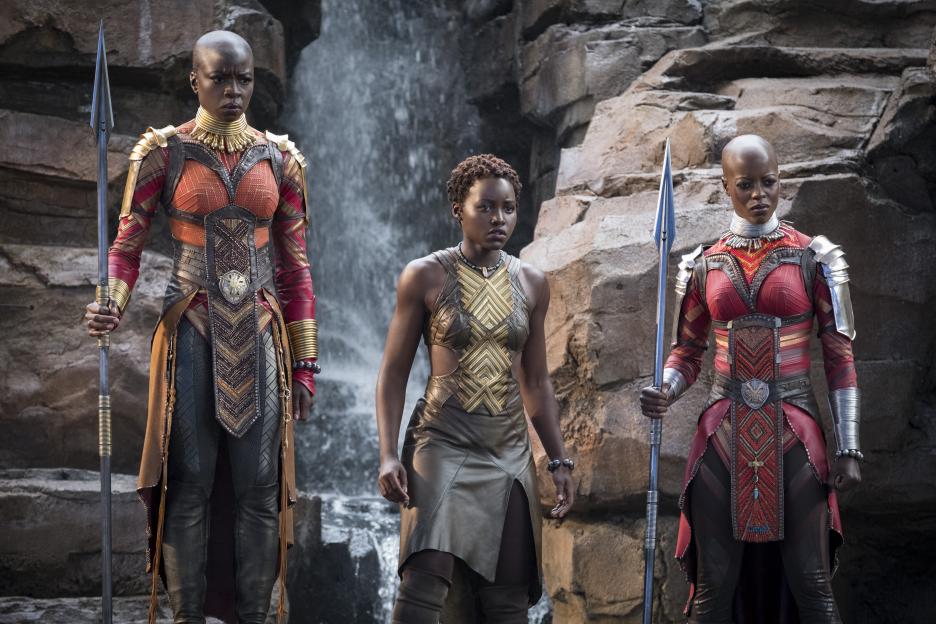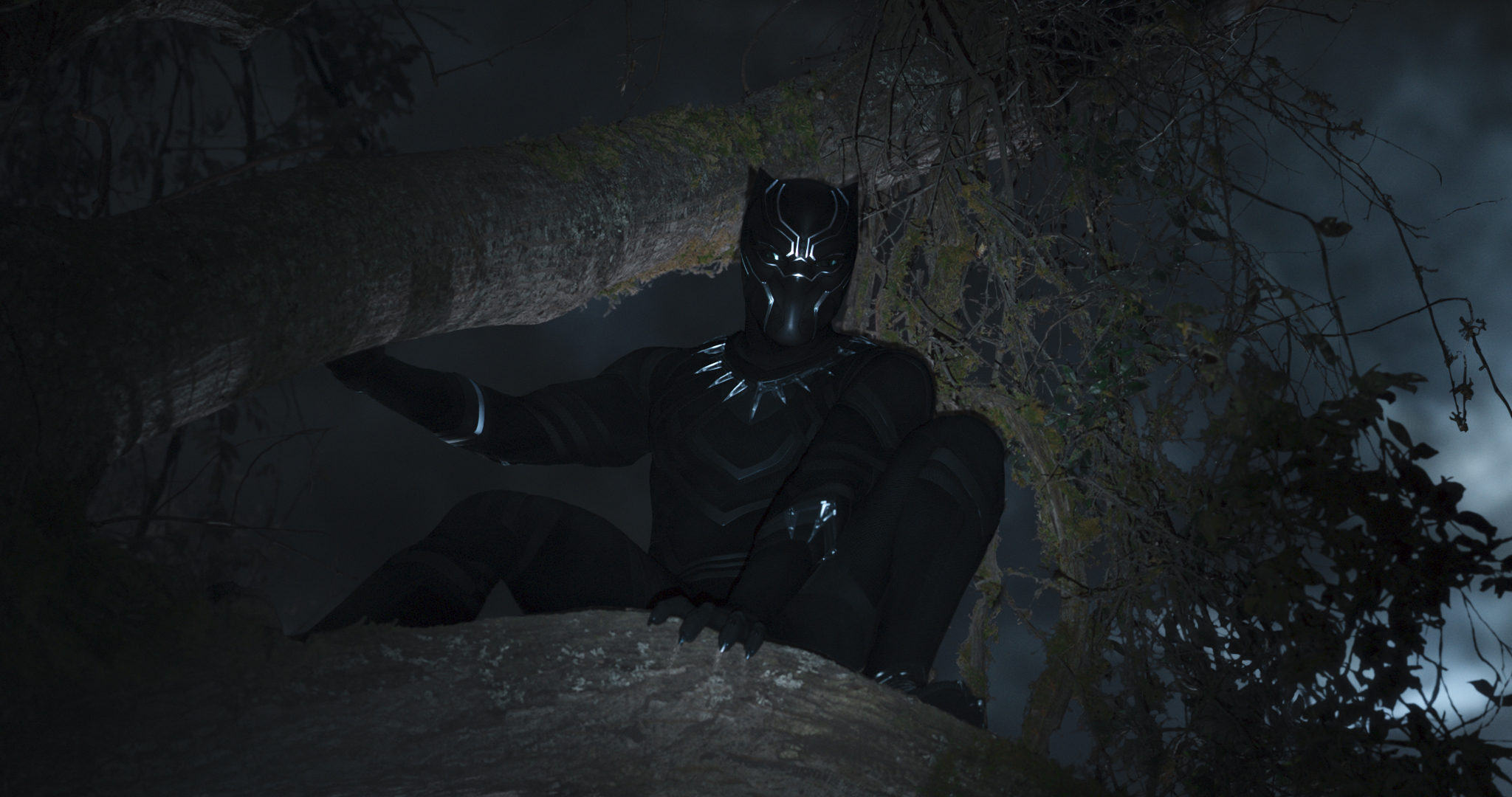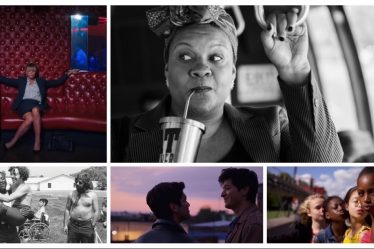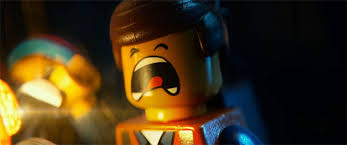

Black Panther is transcendent. It is the sort of movie that saves the blockbuster and gives a ‘raison d’être’ to the superhero genre, in much the same way as Wonder Woman has done, proving that when the quote, “with great power comes great responsibility” is put into action, a story can become about much more than leaping tall buildings or lassoing villains. Black Panther is a message film of the best sort, while keeping audiences consistently excited and entertained. That doesn’t mean I’m going to share more than the remotest elements of the plot, because as with the best stories, it’s more a joy to watch unfold without advance knowledge.
There are two things you need to know about Black Panther: The first is that Director Ryan Coogler has brought every element of this film together seamlessly, and guided and trusted his cast into exceptional performances, so not one moment of the film is wasted or superfluous. The second is that Black Panther is incredibly, poignantly political. Within the first five minutes, I was telling myself if they didn’t answer a basic question about Wakandans and their place in the world, I was going to hate the movie and curse director Ryan Coogler. No need. I should have known to trust the director who crafted recent greats Fruitvale Station and Creed.
Here are the basics. There’s a country called Wakanda in Africa, made up of the Merchant, Border, Mining, and River tribes. It has the only mines of Vibranium, the strongest metal on the planet, from which Captain America’s shield is made. No one knows just how advanced the country is, because they have the technology to hide themselves and their society. They have a king, T’Challa, (Chadwick Boseman), a royal family, and powerful woman-warriors who protect them. There are outsiders who want the Vibranium, and therein lies all the conflict.
Many superhero movies intentionally set an audience member’s attention on the star, and with any luck, that star becomes the reason for repeated viewing. In Black Panther, there are so many strong characters, fans could easily choose another favorite each time they watch it. The film plays as a Who’s Who of A-list black actors, and they not only rise to the challenge, but imprint themselves indelibly into their characters. The mark of a great actor is when we can’t imagine anyone else in the role. Mission accomplished.
My favorite the first time was Shuri (Letitia Wright), T’Challa’s sister. She is a powerful, brilliant “princess”, who is not only highly individualistic, but also acts as a Black Panther version of Q of the James Bond franchise. She is responsible for technological advancements and enhancements that keep the Wakandan warriors alive and safe. She has her own moral compass, and can’t be swayed from it, and she is the smartest person, male or female, in the entire country. T’Challa and his would-be nemesis Killmonger (Michael B. Jordan) are also very compelling, and Jordan’s character brings new dimension to the question of what constitutes a villain. Both Nakia and Okoye, played by Lupita Nyong’o and Danai Gurira, respectively, portray women who are unapologetically powerful, and full of integrity. That they are women is only ancillary to their characters’ jobs as protectors of the country. One is a spy, and the other is the head of the elite Dora Milaje, or Wakandan Special Forces. They too have their inner guides to what is right and wrong, and cannot be swayed by outside forces.
There’s so much to see and consider visually in Black Panther. Nothing, from the environments, to the music, costumes, hair and makeup, is done without careful consideration, and deep research. In particular, there are two masters of filmmaking prowess that can take a lot of credit. Costume designer Ruth Carter has 30 years of experience, two Oscar nominations, and unparalleled experience bringing African culture into costume design in films like Amistad, Malcolm X, and Selma, and the TV remake of Roots. Her designs all perform as extensions of the characters in the film. There are minute details in each of the costumes that speak to them, like the patterns on one of T’Challa’s suits, which is created based on sacred geometry, and the belt buckles used by each of the Dora Milaje, which are meant to look like they’ve been handed down through the generations, from mother to daughter. Production designer Hannah Beachler, who worked with Coogler on Moonlight, Creed, and Fruitvale Station, created locations of layered color and texture, building a lushness that never ceases to impress. Overall, there is an organic quality to every aspect of the film’s design, from the use of natural hairstyles to the flying crafts that look like insects.
It would have been nice for Ava DuVernay’s Selma to have gotten the kind of numbers Black Panther is about to rack up at the box office. Martin Luther King was a real-life superhero, Selma also promoted diversity in front of and behind the camera. Black Panther, however, is a film about myth and magic and power, populated almost entirely by altruistic, brilliant, articulate people of color. There needs to be room for that, too, and it should be celebrated.
5 out of 5 stars



